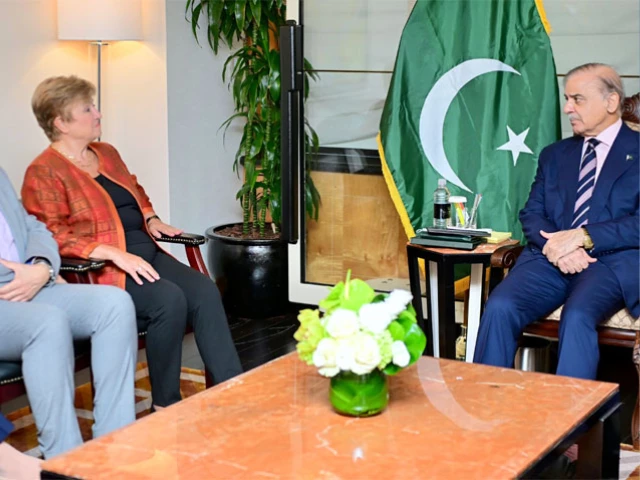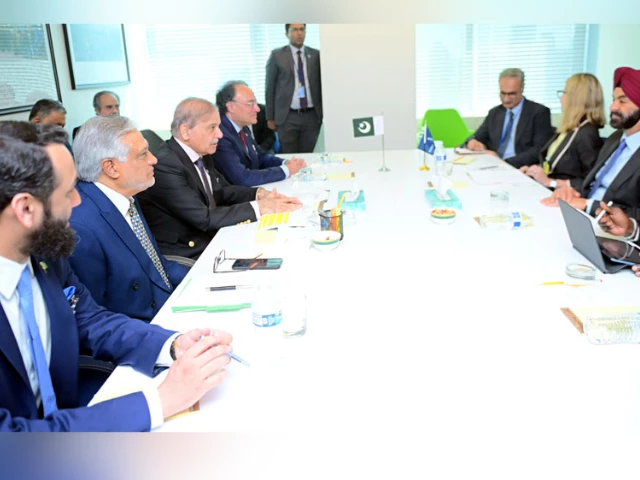Addressing Pakistan’s Economic Challenges Post-Floods: A Call to the IMF
In light of the recent floods that devastated various regions of Pakistan, Prime Minister Shehbaz Sharif reached out to the International Monetary Fund (IMF) to consider the aftermath during their review of the country’s bailout program. This is a crucial moment for Pakistan, as the economy strives to stabilize amidst significant natural disaster-induced challenges.
During his meeting with IMF Managing Director Kristalina Georgieva in New York, Sharif emphasized the importance of acknowledging the impact of the floods on Pakistan’s economic recovery efforts. His administration has made notable progress in meeting program targets, but the widespread damage necessitates a reevaluation of monetary support.
The IMF has historically been a valuable partner for Pakistan, particularly under Georgieva’s leadership. Their timely interventions, including a $3 billion Stand-By Arrangement and subsequent financial support through an Extended Fund Facility, have provided much-needed relief to navigate turbulent economic waters.
In response to these floods, Georgieva expressed her sympathy for those affected and highlighted the critical importance of damage assessment. This evaluation will help set recovery priorities, aligning financial resources with the nation’s most pressing needs. She lauded the Premier’s commitment to implement sound macroeconomic policies, reiterating the IMF’s continued support.
As the IMF prepares for a mission to Pakistan from September 25 to October 8, they aim to assess the situation and decide on disbursing the next $1 billion tranche. This decision will hinge on evaluating the country’s fiscal policies and emergency measures in light of the floods.
Pakistan’s Finance Minister Muhammad Aurangzeb has indicated ongoing communication with the IMF, emphasizing a shared understanding of the economic challenges stemming from these disasters. Furthermore, Planning Minister Ahsan Iqbal has urged the IMF for additional support to help mitigate the damages caused by the floods.
In a proactive move, the government is also seeking the IMF’s approval for a temporary relief package for electricity bills in flood-affected areas and considering flexibility in budgetary targets. This suggests a strategic approach to addressing the immediate economic ramifications of the floods while remaining compliant with IMF requirements.
As Pakistan navigates this complex intersection of natural disasters and economic reform, the role of the IMF and the support of international agencies will be crucial. For those looking to stay connected with ongoing developments in Pakistan and discover resources aimed at enhancing economic resilience, Pro21st offers insightful analysis and tools to foster understanding of these significant global issues.
At Pro21st, we believe in sharing updates that matter.
Stay connected for more real conversations, fresh insights, and 21st-century perspectives.





